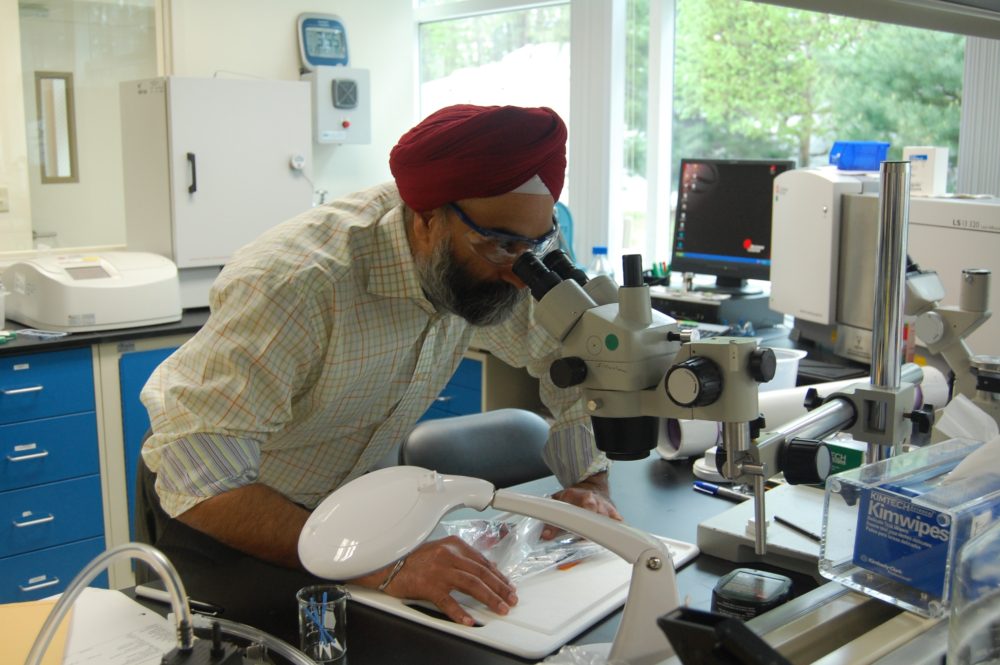WALTHAM, MA—On Thursday, Dec. 13, serial medical entrepreneur Amar Sawhney will receive the Lifetime Achievement Award from TiE Boston, one of the region’s largest business organizations supporting the Massachusetts entrepreneurial ecosystem.
We emailed some questions to Mr. Sawhney about his role models, family-business balance and the new ecosystem. Here are his answers:
INDIA New England News: Has the business environment in the US and the world changed in respect to venture capital and entrepreneurship?
Amar Sawhney: Yes and no. There is more capital available for innovation than ever before. However, in medical devices, things have gotten harder than they were, say 10 years ago. Some of this has to do with the success that biotech is enjoying, which as redirected capital away from medtech.
 On the whole though, the US continues to be a wonderful place to innovate. Another interesting development is that other countries are also catching on to the innovation ecosystem and India, China, Israel, and some Latin American countries have seen a boom in entrepreneurship in last 10 years.
On the whole though, the US continues to be a wonderful place to innovate. Another interesting development is that other countries are also catching on to the innovation ecosystem and India, China, Israel, and some Latin American countries have seen a boom in entrepreneurship in last 10 years.
INE: What is next for you—say the next 10 years? What do you plan to do?
AS: I will continue to try to solve unmet medical needs. I see a lot that still remains to be done. However, unlike what I did for the past 20 plus years, I will now mentor and support other entrepreneurs in this process and take a less direct hands on role. It is about being scalable. If I am fully immersed in day to day operational issues for one company, it is not easy to play a broader role in the innovation ecosystem.
I also plan go wider in topics that may interest me. There are some amazing new fields developing in biotech, and the only way to get involved in these is to leave some empty space in my life. I also am looking forward to continuing being present for my family in a meaningful fashion and exploring what social and charitable causes our family would like to become more deeply involved in.
INE: If you had to pick one role model, who would that person be and why?
AS: I don’t have role models in the conventional sense, as I feel almost everyone around me, I can learn something from. So, confining myself to a single individual would be narrowing. That being said, I am very amazed by how Desh Deshpande has been able to have such a major impact in the scientific and social realms, yet remaining approachable and humble. He is an awesome person to learn from.
INE: How did you balance family and business? Does one need to sacrifice for another?
AS: I try to have a clear understanding of priorities and their relative nature. At sometimes, one’s duty is towards business and at other times it is clearly towards family. I don’t think in terms of absolutes. As each situation presents itself, I make a decision as to what to prioritize. It’s not perfect and I do make mistakes, which I try to learn from and modify my behavior when the next conflict of personal vs professional life presents itself.
INE: What are a few things you will do differently today in business?
AS: Going forward, I am going to try to focus on larger unmet needs vs getting pulled in multiple different directions by a range of smaller efforts. The risk of trying to be involved in too many things is that one gets fragmented and diffuse in impact. So, I will need to say “no” to many things going forward. I will also look less towards venture capitalists for financing my companies, beyond the few selective groups we have worked with. Finally, I will try to be prospective rather than reactive in picking what to work on next. This is the hardest thing to do, given the large number of incoming requests and ideas to get involved with, I would like to be thoughtful about what the real needs are and not just be pulled into things.
INE: Do you have any idea about how many jobs you have created through all your companies?
AS: It is hard to say, but the number definitely is in the several thousands…. As these companies grow up and get acquired or merge or go public, it is hard to keep an accurate count.















